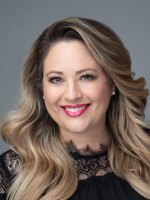The Catholic Church said baptisms performed by a former San Diego priest who served in Arizona for 16 years are now presumed to be invalid because he used incorrect wording on a subtle but key component of the sacrament.
The Diocese of Phoenix estimates that thousands of people were affected by the incorrect baptismal phrasing used by the Rev. Andres Arango, who served in three parishes in metro Phoenix from September 2005 until his resignation Feb. 1. In such cases, the diocese said, other Catholic sacraments received by a person may have to be repeated after he or she is re-baptized properly.
The diocese, which is trying to identify people baptized by Arango, set up a FAQ section on its website to confront issues related to the botched baptisms and also created a form for people who were initiated into the church by the priest to complete.
Arango’s error was in saying, “We baptize you in the name of the Father, and of the Son, and of the Holy Spirit,” when he should have begun the sentence by saying, “I baptize you.”
“The issue with using ‘We’ is that it is not the community that baptizes a person, rather, it is Christ, and Christ alone, who presides at all of the sacraments, and so it is Christ Jesus who baptizes,” Bishop Thomas Olmsted wrote in a mid-January message on the diocese’s site.
The Vatican in June 2020 issued the guidance declaring that the formula “We baptize you...” was invalid and that anyone who was baptized using it must be re-baptized using the proper formula.
The Holy See said it was taking action because some unnamed priests were using the “We” formula to make the baptism more of a communal affair involving parents, godparents and the community in welcoming a new member into the Catholic Church.
Arango was the pastor of the St. Gregory Parish in Phoenix. Before coming to Arizona in 2005, he served in San Diego and Brazil.
Kevin Eckery, director of external and community relations at the Roman Catholic Diocese of San Diego, said the diocese there told people who think they might have been baptized by Arango to talk with their parish priest, check their baptism certificate and get baptized again if they fear theirs was invalid.
“It’s relatively easy to fix it. The parish priest can take care of this quickly — if they want to be re-baptized, they can be,” Eckery said.
Bishop Robert McElroy, the leader of the Diocese of San Diego, told KPBS News in a statement that the diocese has been receiving questions about this issue, adding, "If any such baptisms did take place, it is impossible twenty years later to analyze the nature of each specific baptismal formula that was used in individual baptisms, find the person who was baptized, and rebaptize them.
McElroy also wrote, "Fortunately, this is essentially a pastoral dilemma rather than solely a matter of church law. The theology of the Church teaches that God binds himself to the efficacy of validly celebrated sacraments. The bounty of God's grace powerfully suggests that any men and women who were possibly baptized so long ago have received from the Lord the graces of baptism and all that goes with them in their lives. And thus they should be at ease.
"If anyone who was baptized by Father Arango in our diocese wishes to discuss this pastoral situation in greater depth, I would ask them to please call me personally," McElroy advised.
In an undated note on the Phoenix diocese's website, Arango wrote: "It saddens me to learn that I have performed invalid baptisms throughout my ministry as a priest by regularly using an incorrect formula. I deeply regret my error and how this has affected numerous people in your parish and elsewhere.”
There have been similar cases elsewhere in the past.
In Detroit, church officials in 2020 said a deacon used the wrong words while baptizing people from 1986 to 1999.
The most dramatic consequence in that case involved a priest who was baptized by the deacon as a boy: Because the baptism was invalid, so was the 2017 priestly ordination of the Rev. Matthew Hood, who discovered the wrong words while watching a video of his childhood baptism, the archdiocese said.
The archdiocese said marriages performed by Hood might not be valid and urged couples to speak to their pastor as soon as possible “so any steps can be taken to remedy your marital status in the church, if necessary.”
Hood was baptized again and ordained as a priest a second time.
That same year Oklahoma, a new priest, the Rev. Zachary Boazman, learned that his baptism was invalid as well.
Oklahoma City Archbishop Paul Coakley subsequently validated the marriages performed by Boazman, who was baptized and ordained again.
Katie Burke, a spokesperson for the Diocese of Phoenix, said rank-and-file Catholics brought the issue of Arango’s baptisms to the attention of the church.
“Likely, the people who heard it happen in Phoenix were aware of these other stories and therefore knew the phrasing to be incorrect,” Burke said.
Burke said the diocese was not aware of any seminarians, deacons, or priests who were invalidly baptized by Arango.






